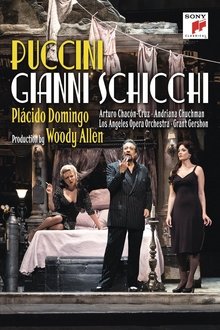Who loves whom in Così fan tutte, Mozart’s and Da Ponte’s cruelly comic reflection on desire, fidelity and betrayal? Or have the confusions to which the main characters subject one another ensured that in spite of the heartfelt love duets and superficially fleetfooted comedy nothing will work any longer and that a sense of emotional erosion has replaced true feelings? Così fan tutte is a timeless work full of questions that affect us all. The Academy Award-winning director Michael Haneke once said that he was merely being precise and did not want to distort reality. In only his second opera production after Don Giovanni in 2006, he presents what ARTE described as a “disillusioned vision of love in an ice-cold, realistic interpretation”.
Related Movies
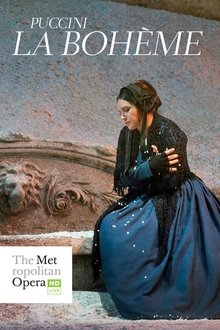
The Metropolitan Opera: La Bohème (2014)
A new generation of rising stars shines in Franco Zeffirelli’s classic production of Puccini’s most popular opera. Vittorio Grigolo is the poor poet Rodolfo who falls head over heels for his neighbor, the seamstress Mimì, sung by the radiant Kristine Opolais. Susanna Phillips is the flirtatious Musetta, Massimo Cavaletti is her sweetheart Marcello, and Patrick Carfizzi as Schaunard and Oren Gradus as Colline complete the ensemble. Stefano Ranzani conducts.
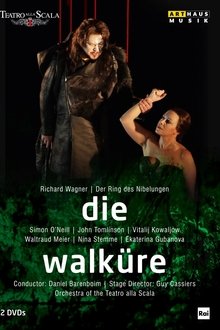
Wagner: Die Walküre (2013)
Richard Wagner called Die Walküre the “first evening” of the Ring of the Nibelung; he called Das Rheingold the prologue or Vorabend. Musically and dramatically, we are introduced to a radically new and different world when the opening bars of Die Walküre resound. A fully developed orchestral palette of Leitmotivs paints a wild storm scene, and the curtain rises on a modest dwelling: a fully human scene that has nothing to do with the gods, dwarves and nymphs of Das Rheingold. At the same time, however, the way Die Walküre portrays radical beginnings reveals some telling reminiscences of the unfolding of Das Rheingold. Die Walküre is exciting and deeply feeling drama.

Figaros Hochzeit (1949)
Shortly after WWII, the DEFA Studios produced a series of operas and operettas which belonged to the classical German musical heritage. This enchanting film, the very first opera production of DEFA, stands out because of its lavish decor and costumes, its outstanding actors and their masterful voices of that time.

Tristan und Isolde (1983)
Take a perfect cast, a great conductor and a groundbreaking staging in-out makes a 'Tristan' for eternity. The 1983 performance in Bayreuth was a great moment for the world of opera. The ensemble performance of René Kollo, Johanna Meier and Matti Salminen with, then as now the Wagner admirer, Daniel Barenboim conducting the Bayreuth orchestra inspired singers and instrumentalists to peak performance. Jean-Pierre Ponnelle created a dream-beautiful stage.
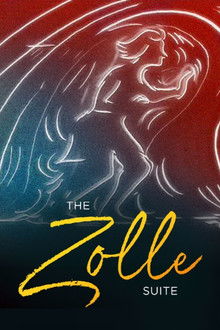
The Zolle Suite (2021)
A dead woman wanders through the shadowy space between memory and reality, tracing the lines of her identity through the land she once walked—an immigrant in death as in life.

The Phantom of the Opera (1925)
The deformed Phantom who haunts the Paris Opera House causes murder and mayhem in an attempt to make the woman he loves a star.

First Opera Film Festival (1948)
An anthology of four abbreviated operas: "William Tell" by Rossini, "The Marriage of Figaro" by Mozart, "Don Pasquale" by Donizetti, and "Carmen" by Bizet. Filmed in Italy with major opera stars, and accompanied by English narration.
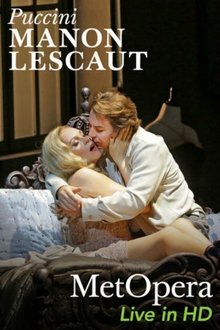
The Metropolitan Opera - Puccini: Manon Lescaut (2016)
Kristine Opolais is the young woman whose conflicting desires for love and luxury lead to her tragic end, and Roberto Alagna plays the man who falls for her in Puccini’s early hit. Richard Eyre’s elegant production, which sets the action in 1940s occupied France, was one of the highlights of the Met’s 2015–16 season. Massimo Cavalletti as Manon’s brother and Brindley Sherratt as her aging admirer co-star, and Principal Conductor Fabio Luisi is on the podium.

Nabucco (2007)
St. Margarethen is a magnificent structure and a grand setting for Nabucco. This venue, along with the gorgeous costumes, spectacular lighting, lasers and pyrotechnics made for one grand, five star production! This is reason enough to see it and it must be an advantage to view it on DVD.--It would probably be harder to digest the whole spectacle if you were actually sitting in the audience, as there is so much to take in. The whole cast was in great form, both in singing and acting. Simon Yang as Zaccaria and Igor Morosow as Nabucco were excellent. Gabriella Morigi was a convincing Abigail who got better and better. Bruno Ribeiro as Ismaele and Elisabeth Kulman as Fenena were great, too.
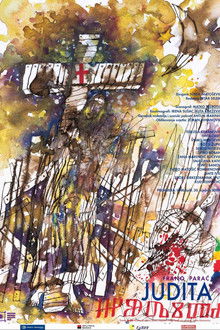
Judith (2000)
Opera adaptation of Marko Marulić's epic poem "Judita" ("Judith"), composed by Frano Parać, with libretto by Frano Parać and Tonko Maroević. Premiered 14th July 2000 in HNK Split (Croatian National Theater Split).
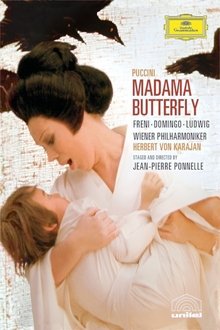
Madama Butterfly (1974)
Mirella Freni, Placido Domingo, Christa Ludwig, and Robert Kerns star in this Jean-Pierre Ponnelle-directed version of the Puccini opera, with Herbert von Karajan conducting the Vienna Philharmonic. Madama Butterfly is a staple of the standard operatic repertoire for companies around the world, ranking 7th in the Operabase list of the most-performed operas worldwide.

Götterdämmerung (1990)
The stupendous climax to Wagner’s four-part Ring cycle is brilliantly realized by the Otto Schenk/Günther Schneider-Siemssen production and byJames Levine’s monumental conducting. The Met orchestra, chorus, and an all-star cast make this Götterdämmerung one that truly rises to the occasion. Hildegard Behrens’s Brünnhilde must be experienced to be believed, as does Matti Salminen’s richly sung, domineering Hagen. At the center of the drama is Siegfried Jerusalem as Siegfried, who does not realize he has been drawn into a plot of betrayal until it is too late. Christa Ludwig is magnetic as Waltraute and Ekkehard Wlaschiha is a compelling Alberich.
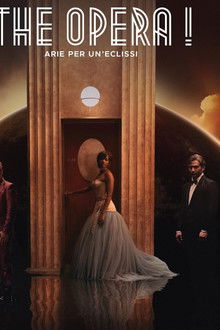
The Opera! Arias for an Eclipse (2025)
A sudden gunshot shatters the dream of two lovers on their wedding day. The fate of Orpheus and Eurydice is cruel: on the very day they sought to seal their love, EurydiceΆs soul embarks on its journey to the underworld. Heartbroken, Orpheus embarks on a perilous journey to bring his beloved back from Hades. A journey that will lead the fearless hero to confront the depths of his emotions and face his greatest fears. This journey will take him through strange worlds and into encounters with some of the greatest musical pieces and arias in the history of music. Will love triumph over death?

Aria (1987)
Ten short pieces directed by ten different directors, including Ken Russell, Jean-Luc Godard, Robert Altman, Bruce Beresford, and Nicolas Roeg. Each short uses an aria as soundtrack/sound, and is an interpretation of the particular aria.
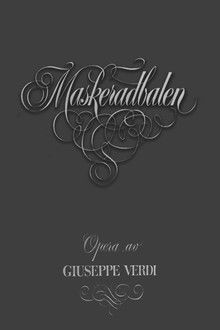
Maskeradbalen (1965)
Göran Gentele's production of Verdi's Un ballo in maschera premiered on television on New Year's Day 1965. Gentele's version is an adaptation in which some of the roles have changed names and locations. The opera is sung in Swedish, and the translation was done by Erik Lindegren.
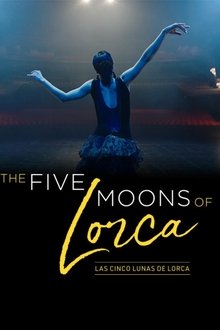
The Five Moons of Lorca (2020)
A short opera about the assassination of poet and dramatist Federico García Lorca at the hands of Nationalist forces at the beginning of the Spanish Civil War.
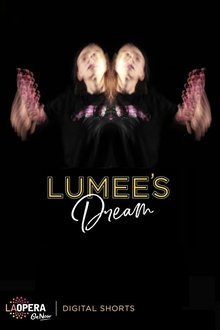
Lumee's Dream (2021)
Lumee, one of the two main characters (of the opera p r i s m), sings this aria while smoking outside a nightclub in the second act, providing a window into her selfish fantasies. Not a recorded section of the opera, but a companion piece meant to depict the character's imagined realities.
